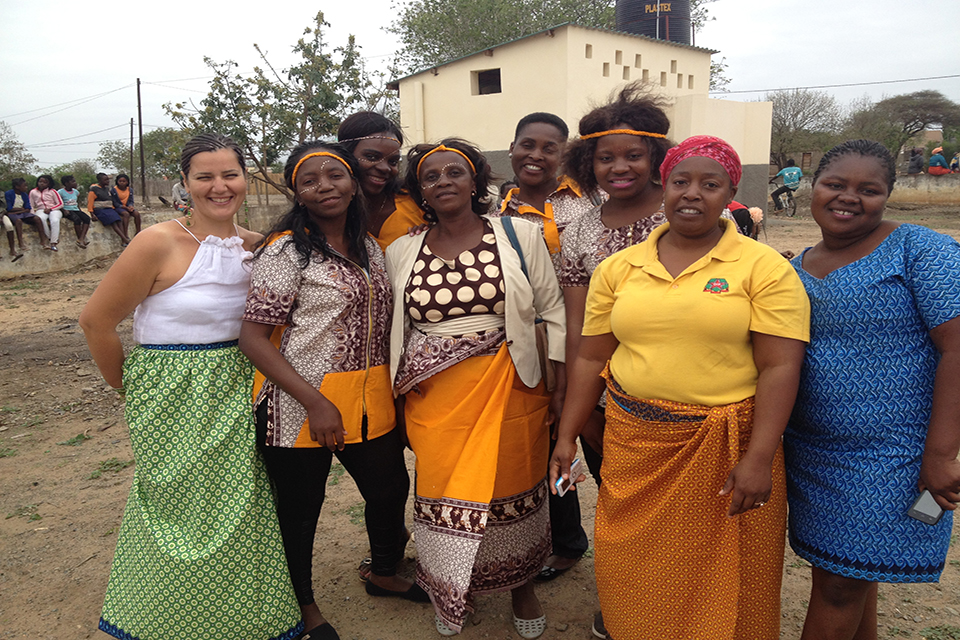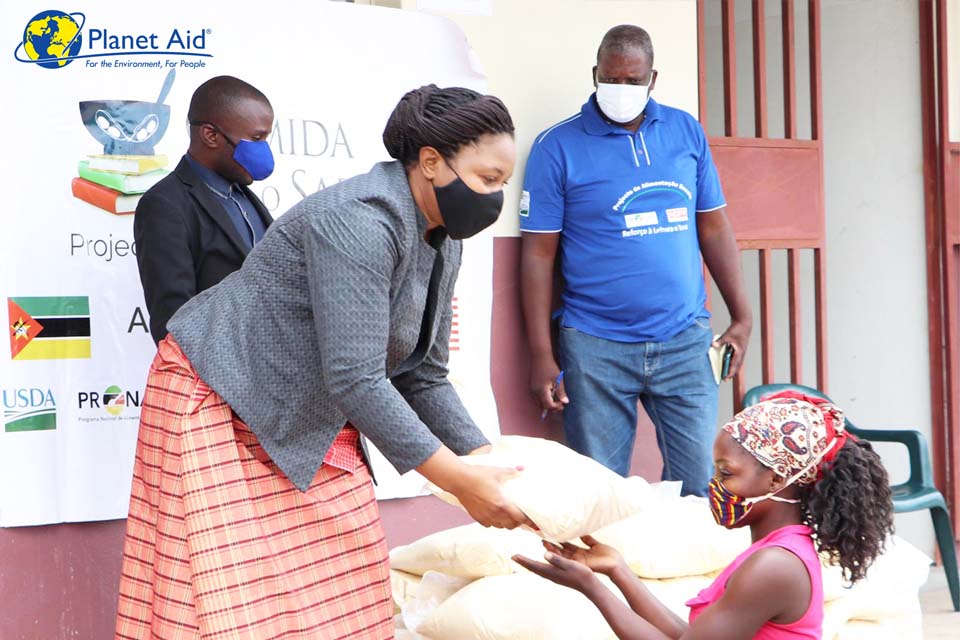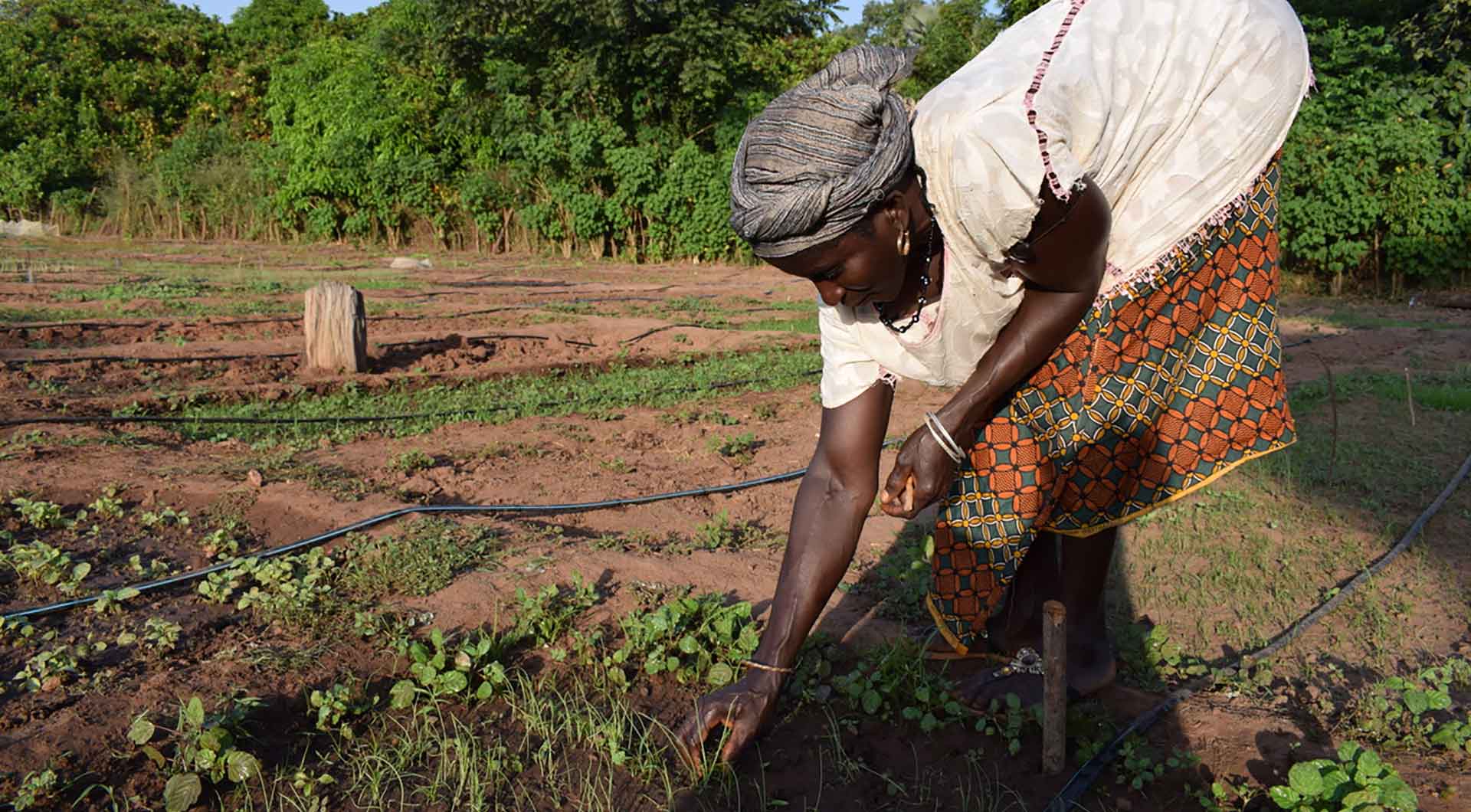
Theme: Support Nurses and Mid-Wives
7 April 2020
INFORMATION PACK
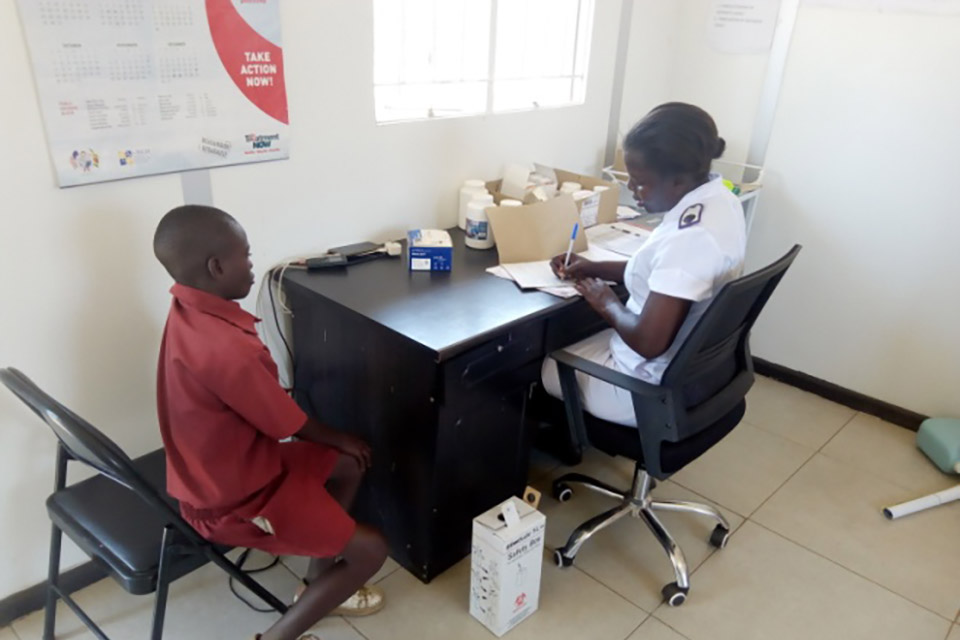
'Now is the time for citizens around the globe to create a lifeline for healthcare workers, enabling them to live a healthier, happier world'
The important role of health care workers
Frontline healthcare workers play a critical role in responding to the world’s ever-increasing global health challenges and demands, especially in the face of disease outbreaks, emergency crises, natural disasters and broader health programming. They are an integral group of women and men who continue to risk their own lives for the betterment of others. They work effortlessly to improve livelihoods, care for pregnant and lactating mothers, feed and tend to the sick and ailing, offering hope and inspiration, and, most importantly, saving millions of lives.
Since its noticeable outbreak in December 2019, COVID-19 remains a dangerous global health threat to humanity, but significantly the health sector. It has depleted already strained health systems and is relentless in hampering the health force’s efficiency as the corona virus battle prevails. The overall result is devastating as we witness the demise of an increasing number of doctors, nurses and medical support staff working on the frontline.
The same is true for public health responses at community level, particularly in the rural areas - the epi-centre of Federation Humana People to People’s activities - where communities are hard hit in the face of ongoing health and emergency crises. The situation is made worse by limited life-saving equipment and a poor ratio between health care workers and the populations they serve. The result: fatigue, burnout, and a desperate need for psychosocial support. Developing countries have seen the mass exodus of nurses and mid-wives seeking employment in the West, forcing communities to fend for themselves.
The theme for World Health Day 2020 thus cannot be over-emphasised: ‘Support Nurses and Mid-Wives’. Celebrated on 7 April annually, the World Health Organisation (WHO) calls on individuals, households, communities and nations to support this valuable resource of people; now is the time for citizens around the globe to create a lifeline for healthcare workers, enabling them to live a healthier, happier world.
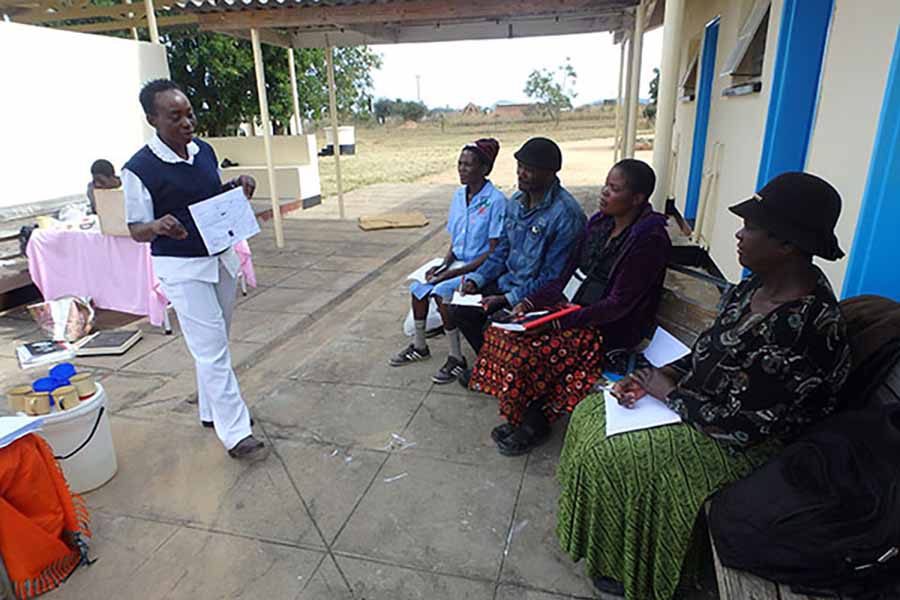
Our community-based approach
As we continue to support the push to leave no-one behind, health workers remain at the centre of our project efforts. Furthermore, our health programmes rely on the force of the community, under the firm belief that only the people themselves can change their health situations if they are well organised and well informed.
In 2019, Federation Humana People to People and its members supported 59 health projects in 13 countries in Asia and Africa with a focus on health promotion and disease prevention, engaging a broad-based community approach with the poorest, most vulnerable communities, as well as adolescent girls and women. Our work is rooted in the community, fraught with limited access to health services and facilities, lack of clean drinking water, and inadequate nutrition. No doubt, this has negatively impacted the force of healthcare workers, hindering sustainable quality care and obstructing disease prevention efforts. Humana therefore strives to promote synergy with health centres and health care staff through establishing, strengthening and sustaining collaboration to improve the well-being of the communities we serve in the poorest and remotest of locations.
Our health programming places great emphasis on HIV/AIDS, TB and malaria through Total Control of the Epidemic (TCE) programming. Engaging this approach, we reached more than 6.5 million people in 2019 alone. Community agents double up as healthcare workers, assisting nurses and healthcare providers, linking index HIV testing cases with effective treatment adherence around the twin epidemics of HIV and TB, as well as malaria. We have successfully integrated innovation-driven approaches through direct family-based support engaging a TRIO system that includes the infected individual and two family members. In South Africa, field workers are divided into small teams of four to five, with a nurse who provides home testing services for those willing to undergo HIV testing.
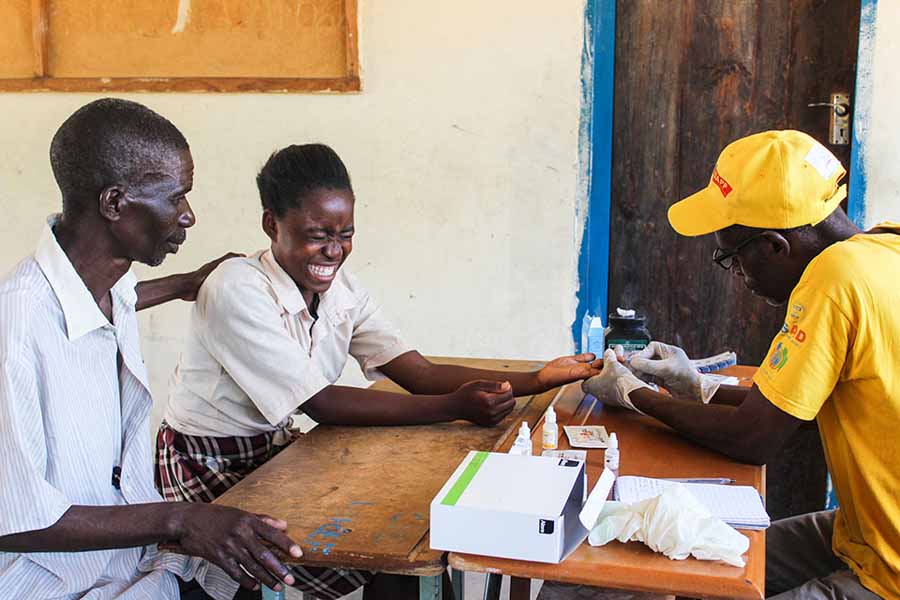
Our commitment to universal goals
The Federation and its members join the world in commemorating World Health Day, and remain committed to reaching universal health coverage (UHC) for all under the 2030 UN Sustainable Development Goal 3.8. This calls for ‘achieving universal health coverage, including financial risk, access to quality essential health care services and access to safe, effective, quality and affordable essential medicines and vaccines for all’.
Humana works closely with health ministries in Namibia and Democratic Republic of Congo, strengthening and building the capacity of health institutions in responding to HIV and AIDS and TB case identification and treatment. Under the TCE HIV Tonga Nzoto project in DR Congo, for example, links are strengthened between community members and clinics, working with nurses and health agents to gain control of the epidemic, as well as providing care for people living with HIV. This project contributes to the global UNAIDS goal of 95-95-95, calling for 95% of those with HIV to be identified; 95% of those with HIV to receive treatment; and 95% of those on treatment to have a reduced viral load.
In Zimbabwe, DAPP participated in a regional Global Fund initiative, Elimination 8 (E8) supported by eight southern African countries to detect malaria cases in a cross-border programme, reaching 7098 people through clinical and public health services. More than 6000 people were tested for malaria in 2019. Core to this programme is the training of village health workers and peer educators who support health workers located at strategic health posts, providing early treatment services.
Health and food security in the global south is central to our efforts, underscoring the need for nutritious, well balanced diets as key components of community well-being. To this end, we continue to accelerate efforts around SDG 2.1 via school feeding initiatives and a variety of nutrition interventions to end hunger, including providing safe and balanced food provisions for infants. Furthermore, we continue to push for an end to all forms of malnutrition, working with partners, the community and health care workers in line with SDG 2.2. Our Food for Knowledge (FfK) programme in collaboration with ADPP Mozambique saw more than 12.5 million school meals fed to 87 453 children in Maputo, Mozambique in 2019.
Follow us on Facebook and Twitter @HumanaHPP
Website: www.humana.org
